LOCALISING KNOWLEDGE TO DEVELOP THE NATION
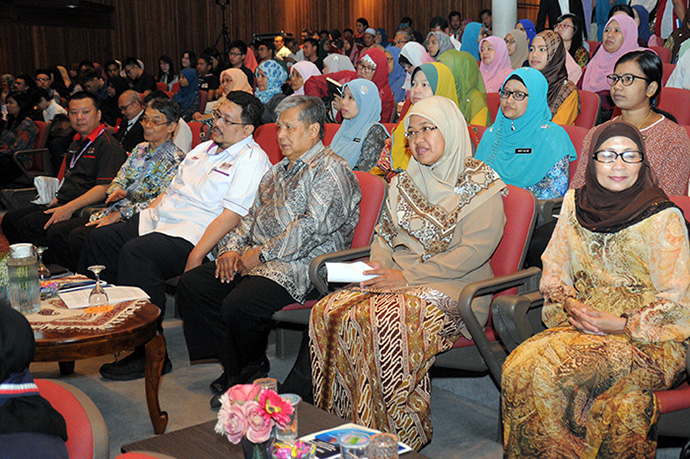
USM, PENANG, February 2017 – Efforts to promote knowledge to communities, which would lead to a highly civilised society with a strong knowledge base and having exemplary achievements, would be realised when such knowledge could be interpreted into outcomes and improvements on such knowledge could be well understood and implemented.
According to the President of the Malaysian Translators Association (PPM), Emeritus Professor Dr. Abdullah Hassan, such efforts could be done by focusing on four aspects, which are to educate the nation in its own language; translating the knowledge by localising it; creating knowledge that is acquired; and to be creative, innovative and to use technology to benefit the local communities.
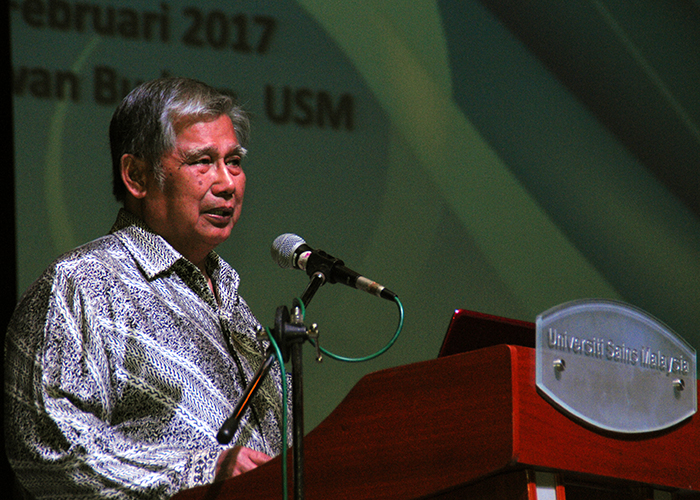
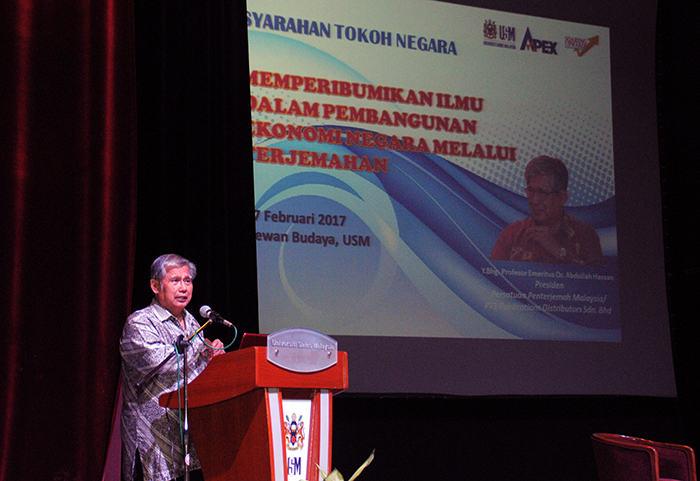
He added that, there are assumptions that a nation would achieve success if they were to borrow or imitate their colonial masters, which history in many instances, has proven otherwise.
"Nations which have been dominated would commonly imitate the clothing style, spiritual symbols, culture and practices of the domineering group.”
"It’s a common human behaviour in assuming that the nation which had dominated them would be an example of perfection," said Abdullah.
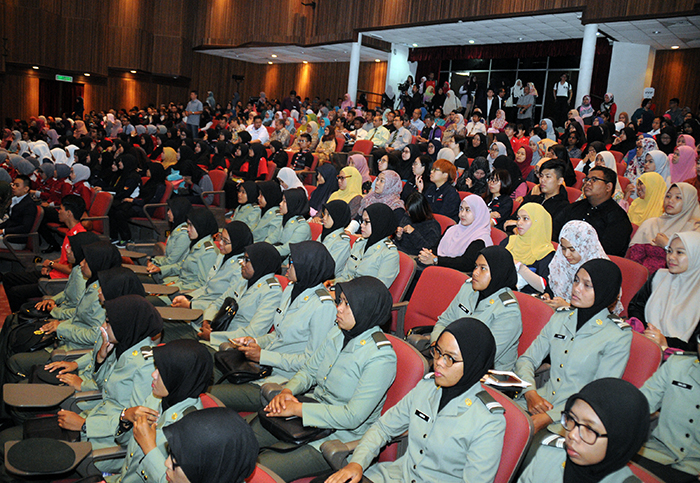
He stressed that, there is a close relationship between creativity being an important element in developing the economy and the language used in disseminating knowledge; which in simple terms means that when the language of instruction is their own language, it allows the community greater freedom to think and to generate creative ideas.
"When we use a language that is borrowed, our minds would be restrained by the culture of that language, and which would result in us merely becoming users of the products from that culture," he explained.
He elaborated on the importance and history of knowledge, including those from the civilisations of Islam which previously had shaped the world, and also how they have upheld the works of academicians by recording, translating and producing written works which have greatly influenced other civilisations, but only to be destroyed when nations and the people were colonised, as what had happened to Iraq, when they were invaded by the United States of America at one time.
Abdullah explained that, in the process of educating and advancing the people, we need to learn from Germany when it became a developed nation after localising the knowledge in its own language, through the efforts of Gottfried Wilhelm Leibniz in upholding the German language.
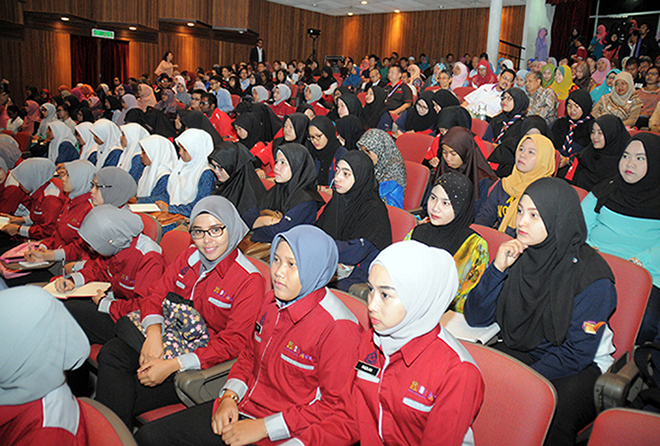
Leibniz had suggested a few strategies such as to standardise the German language by organising its grammar rules and terminologies, ensuring that the German language is widely used by the German people, making German the language of instruction in schools and universities, using the German language as the language in the administration of the country, as well as in business and general communications in all areas and at all levels.
“Look at how the Japanese practised their own culture in localising knowledge, utilising two methods which are by making big ‘things’ become smaller through the ‘bonsai’ technique and using the ‘kaizen’ process, which is not merely throwing away items needlessly, but by improving those items further and making them better than before,” he said at the Syarahan Tokoh Negaraheld at Dewan Budaya here recently.
He added that, there are books which have been translated and highly valued throughout the civilised world. Among them are works such as the Canon of Medicine (1484) written by Avicenna (Ibnu Sina), the Complete Works of William Shakespeare, Philosophiae Naturalis Principa Mathematica (1686) written by Sir Isaac Newton, which only came into notice 200 years after he died when it was translated into various languages, The Wealth of Nations (1776) by Adam Smith, the Napoleonic Code (1804) set of French laws and The Road Ahead (1995) by Bill Gates.
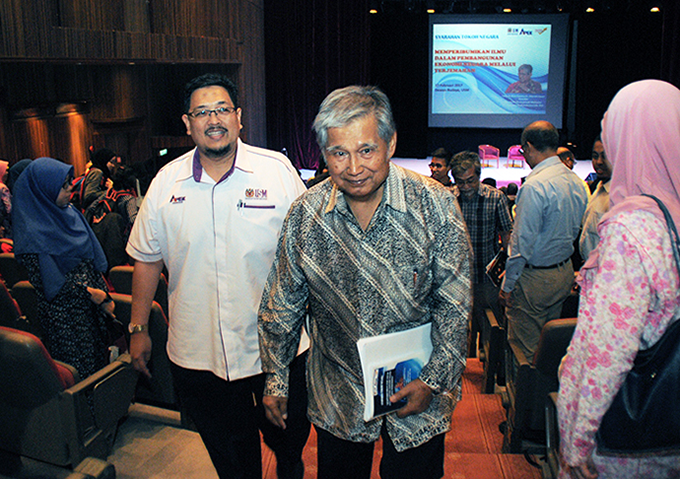
Professor Abdullah Hassan appealed to and urged the audience of approximately 500 people, who attended the programme organised by the USM School of Humanities (PPIK) Translation and Interpretation Research Unit, to ensure that the university will not sideline the writing and translation of books in Malay, even though at present writings in various fields in English are also given recognition.
He also reminded on the need for new discoveries to be patented to prevent others from using such discoveries for commercial purposes.
Others present at the Lecture were the Director of USM Engineering Campus, Professor Dr. Ahmad Farhan Mohd Sadullah, representing the USM Vice-Chancellor; Dean of PPIK, Professor Dr. Narimah Samat; the USM Ombudsman, Professor Dato’ Seri Dr. Md Salleh Yaapar and Coordinator of the PPIK Translation and Interpretation Research Unit, Associate Professor Dr. Goh Sang Seong.
Translation: Mazlan Hanafi Basharudin
- Created on .
- Hits: 1253
